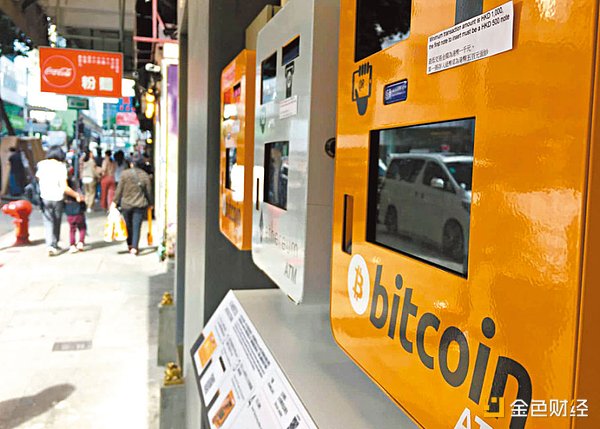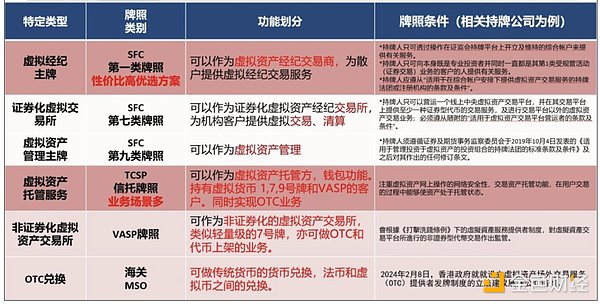Author: FlowHarbour Research
Since 2021, the Chinese government has banned cryptocurrency trading. Since traditional financial institutions cannot directly participate in cryptocurrency trading, over-the-counter (OTC) trading has become the main channel for many Chinese investors to participate in the cryptocurrency market to circumvent regulatory restrictions and meet their investment needs.
OTC stands for Over-the-Counter. As the name suggests, any place where transactions are conducted outside of traditional exchanges can be considered an OTC market. In the field of cryptocurrency, OTC transactions are mainly conducted in three forms: online platforms mediated by social media, offline physical exchange points, and crypto ATMs.
As an international financial center, Hong Kong's open attitude and policies towards cryptocurrency have provided new channels for mainland Chinese investors. According to Chainlysis data, Hong Kong's cryptocurrency adoption rate has increased by 85.6% over the past year, making it the fastest growing region in the region. To further strengthen industry supervision and reduce retail investment risks, the Hong Kong Securities and Futures Commission announced in September that it plans to jointly supervise OTC virtual asset trading services with the Customs Department. Previously, in the proposal published in February 2024, this area was only supervised by the Customs. It is reported that the Securities and Futures Commission has consulted the industry on the new licensing system for over-the-counter trading of cryptocurrencies. In addition, the Securities and Futures Commission is also exploring the licensing system for cryptocurrency custody services. 1. The current situation of OTC in Hong Kong Hong Kong's cryptocurrency over-the-counter (OTC) market was once prosperous, with many exchange shops scattered on the streets and alleys, providing users with convenient cash and cryptocurrency exchange services. These shops usually do not require users to conduct identity authentication (KYC), and the single transaction limit is also high. For example, some shops last year could exchange up to 1 million Hong Kong dollars in a single transaction, and users only need to leave a phone number or email address to complete the transaction. Compared with the high handling fees of digital exchanges, the exchange rate of OTC exchange shops is more attractive and more convenient, attracting a large number of users.
According to surveys, as of June 2023, the total amount of digital assets flowing through Hong Kong reached 64 billion US dollars, of which OTC exchange shops accounted for a considerable proportion. Hong Kong law enforcement agencies initially estimated that there are about 200 physical virtual asset OTC trading shops in Hong Kong, and about 250 active online virtual asset trading service providers.

However, this free trading environment also hides risks. The lack of regulation in the OTC market has given rise to illegal activities such as money laundering and fraud. For example, in the JPEX and Hounax incidents in 2023, some cryptocurrency exchange shops falsely advertised the compliance of the platform, causing heavy losses to investors. Investors lost up to $180 million in the JPEX incident, and the Hounax scam caused 145 victims to lose a total of $18.9 million.
Second, in February 24, Hong Kong announced plans to bring virtual currency OTC exchanges under regulation
In response to the chaos in the OTC market, the Hong Kong government decided to strengthen supervision. In February 2024, Hong Kong Financial Services and the Treasury Bureau Director Xu Zhengyu said that the government plans to bring virtual currency OTC exchanges under regulation and consult on the proposed regulatory framework. According to the legislative proposal, Hong Kong plans to establish a licensing system under the customs department, requiring all virtual asset OTC trading service providers to apply for a license and comply with relevant regulations such as the Anti-Money Laundering Ordinance. This means that the era of no KYC will come to an end, and OTC transactions will be more transparent and standardized.
By combing through the legislative proposal, we can see that the main contents of the new regulations will include:
1) Licensing system:
All online platforms and offline entities (including ATMs) engaged in virtual asset spot trading services in Hong Kong must apply for a license from the Hong Kong Customs.
This move means that the era of no KYC (identity authentication) has officially come to an end, and all OTC platforms must implement the KYC process.

2) Trading currency restrictions:
3) Anti-money laundering and terrorist financing compliance:
4) Penalties for violations:
Operating OTC business without a license, once convicted, may be fined up to HK$1 million and imprisoned for two years.
If a licensed institution violates relevant regulations, it will face administrative penalties, including fines, reprimands, suspension or revocation of licenses, etc.
The Hong Kong government's public consultation on the OTC licensing system ended in April. The new regulations have sparked heated discussions in the industry. Some people believe that this will promote industry compliance, but others worry that overly strict supervision will hinder the development of the industry. The specific implementation details of the new regulations remain to be seen, but it is foreseeable that the Hong Kong OTC market will usher in major changes.
3. How will the new regulations affect the market
The introduction of the new regulations will have a far-reaching impact on the Hong Kong cryptocurrency market, especially the OTC trading field. Specifically:
Industry reshuffle, head effect intensified: The new regulations require OTC platforms to perform KYC certification, comply with anti-money laundering regulations, and limit tradable currencies, which will greatly increase operating costs. Small OTC exchange shops may be forced to exit the market due to their inability to bear compliance costs, while large, compliant platforms will gain a larger market share and industry concentration will further increase.
Compliance costs rise, and transaction costs may be passed on: In order to meet regulatory requirements, OTC platforms need to invest more resources in compliance construction, such as hiring compliance personnel and upgrading KYC systems. Some of these cost increases may be passed on to users, resulting in a decline in the cost advantage of OTC transactions.
Degradation of user trading experience: The introduction of KYC certification means that users need to provide more personal information, and the convenience of trading will be reduced. In addition, the restrictions on tradable currencies may also reduce the freedom of users to choose transactions.
Increased market transparency and reduced risks: The implementation of the new regulations will make OTC transactions more transparent, and regulators will be able to better monitor the flow of funds and combat illegal activities such as money laundering. At the same time, the supervision of platforms will also raise the industry threshold and reduce the risk of investors being defrauded.
Although the new regulations may have a certain impact on the market in the short term, in the long run, a sound regulatory system will enhance investor confidence, attract more institutional funds to enter, and promote a healthier and more sustainable development of the Hong Kong cryptocurrency market.
 JinseFinance
JinseFinance







